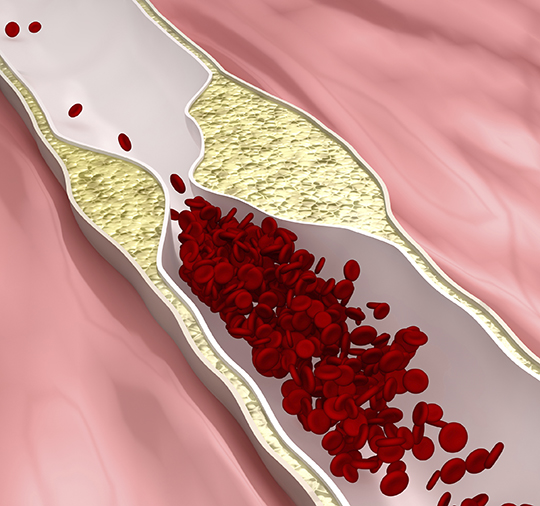We have 3 convenient locations throughout Southeastern Wisconsin.
The carotid arteries are the large arteries in the front sides of the neck that bring oxygen to the brain.
Atherosclerosis, also known as hardening of the arteries, is a disease where plaque made up of calcium, cholesterol, fat and other substances builds up on the inside of the artery wall and narrows it so that the artery cannot deliver the normal amount of blood to the tissues.
Buildup occurs from many factors, including:
- Tobacco use (nicotine irritates the lining of your arteries, and smoking also increases heart rate/blood pressure)
- High blood pressure (constant pressure on artery walls weaken them and make them vulnerable)
- Diabetes (which impairs the body’s ability to process and break down fats)
- Age (arteries become less elastic as a body ages)

How is carotid disease diagnosed?
Cartoid disease is diagnosed via a Carotid Doppler, also known as carotid ultrasound or carotid duplex.
This is a non-invasive method of diagnosing carotid stenosis. It is painless and may be repeated as often as necessary.
Carotid stenosis can sometimes be diagnosed by listening through a stethoscope and hearing an abnormal sound in the carotid artery.
Angiography (an X-ray procedure involving the injection of dye into the artery), ultrasound of the artery, or magnetic resonance imaging (MRI) of the head may reveal carotid stenosis.
Additionally, sometimes tiny blood clots can be seen in the eye’s blood vessels.
These procedures can be performed onsite at The Brain and Spine Imaging Center, our facility in Franklin, WI.
Is surgery necessary for carotid disease?
Severe carotid stenosis is often treated with surgery. Learn more on our Treatment of Carotid Disease page.
Additional information and support can be found on the American Stroke Association website: www.strokeassociation.org.
What are non-surgical treatment options for carotid disease?
Until the degree of blockage has progressed to around 70%, the cartoid disease is treated medically. Carotid disease is initially treated with antiplatelet agents such as aspirin or clopidogrel. Blood pressure control and dietary control of fats and sugars are important in slowing the progression of carotid disease.
There have been many studies regarding stroke prevention and control of carotid disease. Routine follow-up of carotid disease with carotid ultrasound, MRA or CTA will indicate if the disease is stable or if it is progressing

